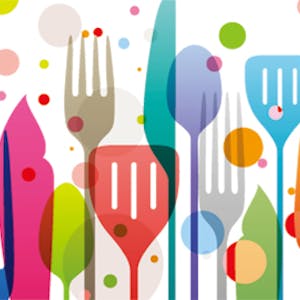The Science of Gastronomy
This course introduces a number of basic scientific principles underpinning the methodology of cooking, food preparation and the enjoyment of food. All topics covered have a strong basis in biology, chemistry, and physics application. Among others, they include the consumption of cooked food, the physiological and evolutionary implication of the senses, geographic and cultural influences on food, and the rationale behind food preparation. We will also discuss issues such as coupling of senses to improve sense stimulation; altering flavor by chemical means; and modification of the coloration to improve the appearance of dishes. Following the video demonstrations of the scientific principles of cooking, you will learn to recognize the key ingredients and their combinations for preparing good healthy food. At the end of this course, you will be able to:- appreciate the scientific basis of various recipes;
- develop your own recipes by integrating some of the scientific principles into new dishes;
- recognize the influence of the material world on human perception from the different senses;
- appreciate the art of integrating science into cooking and dining.
Important Note: This course is not designed for people with special dietary needs such as vegetarian, diabetic, and gluten-free diets. If you feel uncomfortable with any part of the assignments or activities of this course, you can substitute some of the ingredients or ask friends and family members to help with the tasting of your assignments. Alternatively, you may skip that specific assignment provided that you have fulfilled all other qualifying requirement to pass the course.
Course Overview video: https://youtu.be/H5vlaR0_X2I
None
Syllabus
Syllabus - What you will learn from this course
Week 1
Orientation, Module 1 and Module 2
This week, we will focus on “Energy Transfer” and “Hunger and Satiety”. Before you start with the content for these modules, please watch the Course Overview, review the Grading Scheme, and read the Important Note on special dietary needs.
Week 2
Module 3 and Module 4
This week, we will talk about how flavor and aroma of food affects our perception of taste of food.
Week 3
Module 5 and Module 6
This week, we will talk about how color and texture of food affects our perception of taste of food.
Week 4
Module 7 and Module 8
This week, we will look at how fruits and vegetables can enhance the quality in cooking and to learn about the properties of meat.
Week 5
Module 8 (continued) and Module 9
This week, we will continue our focus on the preparation and cooking of meat and learn about the elements that affect the preparation of sauces.
Week 6
Module 9 (continued) and Module 10
This week, we will continue our focus on the preparation of sauces and finish up the course with the last topic on dessert. After completing all the content, it’s time to test your understanding on the entire course. Take the final exam and complete the post-course survey. Your valuable feedback will certainly help us improve future iterations of the course.
FAQ
When will I have access to the lectures and assignments?
Access to lectures and assignments depends on your type of enrollment. If you take a course in audit mode, you will be able to see most course materials for free. To access graded assignments and to earn a Certificate, you will need to purchase the Certificate experience, during or after your audit. If you don't see the audit option:
The course may not offer an audit option. You can try a Free Trial instead, or apply for Financial Aid.
The course may offer 'Full Course, No Certificate' instead. This option lets you see all course materials, submit required assessments, and get a final grade. This also means that you will not be able to purchase a Certificate experience.
What will I get if I purchase the Certificate?
When you purchase a Certificate you get access to all course materials, including graded assignments. Upon completing the course, your electronic Certificate will be added to your Accomplishments page - from there, you can print your Certificate or add it to your LinkedIn profile. If you only want to read and view the course content, you can audit the course for free.
Is financial aid available?
Yes. In select learning programs, you can apply for financial aid or a scholarship if you can’t afford the enrollment fee. If fin aid or scholarship is available for your learning program selection, you’ll find a link to apply on the description page.
Reviews
Great course I learn many many things of this course I am chef
please also star some culinary course and food safety course for chefs
I really appreciate of this course
there should be a digital certificate in PDF for those who can not pay because everybody does a lot of effort and time to finish this course
It was vary good gave me ideas on how to improve my cooking technique, and allowed me to use my imagination to make my dishes better!
It was an amazing course... It helped me learn more about the food science... And the chemistry of food
